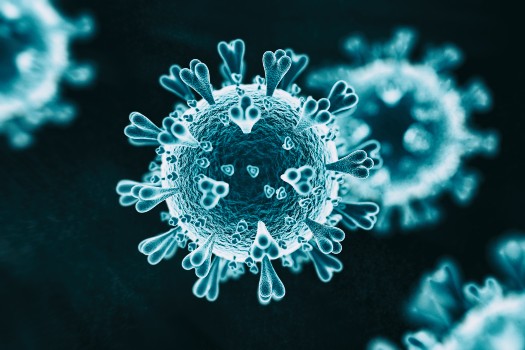Lockdown measures have had a ‘large effect’ in controlling the Covid-19 outbreak, leading to 470,000 deaths being avoided in the UK, according to new research.
It comes as the UK death toll from the virus has exceeded 40,000 – more than double the 20,000 deaths that the UK’s chief scientific advisor said in mid-March would be a ‘good outcome’.
Researchers from Imperial College London looking at the impact of lockdown and other interventions, such as school closures and social distancing, said ‘continued intervention should be considered’ to manage the coronavirus outbreak.
The team of academics assessed 11 European countries – including the UK, Spain, Italy, Germany and France – up until 4 May when restrictions started to be lifted.
They estimated around 5.1% of people in the UK had been infected by that point. This compares with 0.85% in Germany, representing one of the lowest rates, and 8% in Belgium, the highest estimate.
In a paper published today in the journal Nature, the research team said that interventions had across all countries caused the reproduction rate of the virus – known as the R number – to drop below one, leading to ‘epidemic control’.
Lockdown had a large effect on the R number, cutting it by 81%, but the impact of other interventions is harder to establish because ‘most interventions were implemented in rapid succession in many countries’ said the paper.
The analysis shows an estimated 3.1 million deaths across the 11 countries had been avoided up until the start of May as a result of lockdown and other measures, including 470,000 avoided deaths in the UK.
This is based on the researchers estimating 500,000 UK deaths would have occurred by the start of May had no interventions taken place.
The paper said: ‘We estimate that, across all 11 countries, between 12 and 15 million individuals have been infected with SARS-CoV-2 up to 4th May, representing between 3.2% and 4.0% of the population.
‘Our results show that major non-pharmaceutical interventions and lockdown in particular have had a large effect on reducing transmission. Continued intervention should be considered to keep transmission of SARS-CoV-2 under control.’
It added: ‘We find that, across 11 countries, since the beginning of the epidemic, 3,100,000 [2,800,000 – 3,500,000] deaths have been averted due to interventions.’
Meanwhile, a separate paper published in Nature today and looking at the impact of lockdown in six countries – China, South Korea, Italy, Iran, France, and the US – also found ‘large-scale anti-contagion policies are slowing the Covid-19 pandemic’.
It added: ‘Our analysis of existing policies indicates that seemingly small delays in policy deployment likely produced dramatically different health outcomes.’
As of 9am on 8 June, 287,399 people in the UK have tested positive for coronavirus – and up until 5pm on 7 June, of those who tested positive for coronavirus in the UK, 40,597 have died across all settings, according to figures from the Department of Health and Social Care.

















